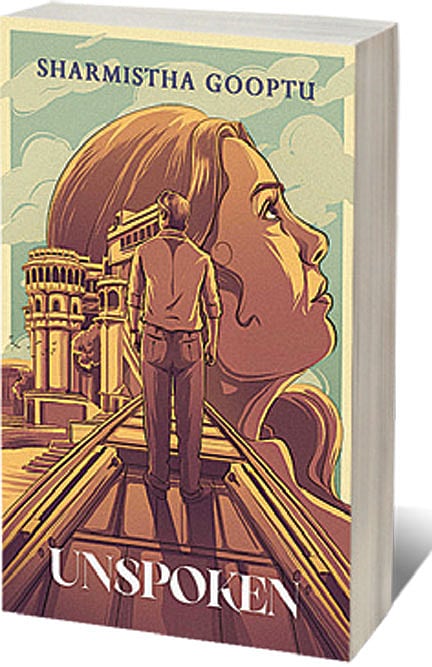Mothers and Daughters

“LONELINESS WAS LIKE dying a slow death. Each of us had that curse of loneliness in our lives, no matter how surrounded we were by our near and dear ones. That curse would chase us till our very last days, unless we connected with our true selves,” writes Sharmistha Gooptu, speaking through her protagonist Aisha aka Teena in her recent novel, Unspoken.
But how difficult it is to uncover our true selves. And how much of our truth has to do with the blood that runs in our veins and the nucleotides that constitute our DNA.
How can we know ourselves if we don’t know those who gave birth to us? In stripping the layers of mystery that cover her mother’s life, Aisha finds her own truth.
The daughter of a famous film director, only known as Boy, and his beloved, whom Teena addresses as Miu, she finds that her parents’ marriage wasn’t as perfect as it seemed. Her mother had a whole other life with another man, A. But is her mother merely suffering from dementia and is delusional, or was it indeed true? And who is Shree Bose, who apparently died by suicide and had something to do with A?
The questions take her to the world’s oldest and most secretive city, Varanasi. It is here that Aisha uncovers the truth about her parents, about star academic Shree Bose and self-styled yogi Abhimanyu Mishra.
AIming High
20 Feb 2026 - Vol 04 | Issue 59
India joins the Artificial Intelligence revolution with gusto
Written during the pandemic and set in the year 2024 and 2025, Gooptu who has done extensive work on Bengali cinema, immerses herself and us in the world of film and food, between Kolkata and Varanasi, between dreams and reality, between the world of academia and television, between the past and the present. It requires a powerful control of the narrative to go back and forth in time and space like the novel does, but Gooptu does it with ease, never in a hurry to bring us to the culmination.
In a loveless world, there is much to treasure in Unspoken. Assumptions are shattered, memories uncluttered, and paths retraced as Gooptu’s Aisha reaches out to her mother, literally and metaphorically. There is so much unsaid in relationships, even with our closest ones, and often it is much too late to go on a journey of rediscovery. Aisha is not merely a dutiful daughter but also an emotional archaeologist, excavating the remains of a ruined love. That it also helps her resolve her own complicated feelings about the man she thinks she loves and the man she may actually love is just one of the unintended consequences of her interrogation. When it comes to psychological trauma, it is in helping others that we often help ourselves. It can be exhausting, as it is for Aisha, but then so is adulthood. Growing up is tough, but embracing pain can bring a strange sort of peace.
Gooptu, a historian and a writer, is also the author of Menoka Has Hanged Herself (2019). She is the founder-editor of the journal South Asian History and Culture. In the acknowledgements of Unspoken she writes, “This book is a pandemic baby…the lens of dementia is a metaphor for that time of sickness and despair which changed the world and most of us in it.”
She has a knack for words and the agony of a love wrong is well described: “She was so sick of it all, this going around in circles. This game that they played, a game, which nobody ever won and which they kept on at until it would become like a war of nerves, and she sank to the lowest of depths. He himself would have on a stoic face, like his suffering was myriad more than hers, when really it was he that had pushed her to the brink every time.”

